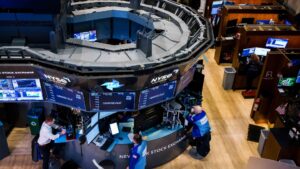Elon Musk Fires Back at Twitter Lawsuit

Lawyers for Mr. Musk filed papers with the Delaware Chancery Court, their first public response to the lawsuit filed earlier this week by the social-media company seeking to enforce the terms of their merger agreement. The court should reject Twitter’s “unjustifiable request to rush this,” they said in their filing.
Twitter has asked the court to expedite the proceedings, citing risks from the recent economic downturn and being held in limbo by a buyer. The company requested a trial by mid-September “to protect Twitter and its stockholders from the continuing market risk and operational harm resulting from Musk’s attempt to bully his way out of an airtight merger agreement.”
Mr. Musk moved to terminate the acquisition last week, saying the company hadn’t provided the necessary data and information he needed to assess the prevalence of fake or spam accounts and was “in material breach of multiple provisions” of the merger agreement.
Twitter has rejected that assertion and argued that Mr. Musk hasn’t adhered to the terms, including violating a nondisclosure agreement and then bragging about it on Twitter.
In Friday’s filing, Mr. Musk’s lawyers said: “The core dispute over false and spam accounts is fundamental to Twitter’s value. It is also extremely fact and expert intensive, requiring substantial time for discovery.”
Mr. Musk’s lawyers argued that “it is unnecessary to resolve these weighty considerations on a breakneck schedule” and asked for a trial date on or after Feb. 13 of next year, adding that the debt financing was valid until April 25, 2023.
Twitter declined to comment.
Mr. Musk has fired criticism at Twitter through a steady stream of tweets over the past several months, and his lawyers have raised specific complaints in several letters that have been made public through securities filings. But Friday’s court document is the first time his side has laid out publicly a clear timeline around his concerns over data about fake and spam accounts, and included new claims about Twitter’s level of cooperation on the issue.
Mr. Musk’s side became concerned about Twitter’s user numbers after the company announced revisions in its first quarter earnings in April, when it said it had overstated its user base for nearly three years through the end of 2021 due to an error in how it accounted for people linked to multiple accounts. The revision reduced the number of monetizable daily active users by 0.9% for the fourth quarter of last year.
In a May 6 meeting with Twitter executives about how spam is calculated, Mr. Musk ’s team on Friday said he was “flabbergasted to learn just how meager Twitter’s process was,” and pointed to the absence of automated tools to help with the calculation.
Twitter has long estimated that fewer than 5% of its monetizable daily active users are spam or fake accounts, a figure Mr. Musk has disputed. In its suit against Mr. Musk, Twitter said the
Tesla Inc.
CEO’s attempt to abandon the transaction reflects souring market conditions that resulted in his personal wealth declining by more than $100 billion from its November 2021 peak. “Rather than bear the cost of the market downturn, as the merger agreement requires, Musk wants to shift it to Twitter’s stockholders,” the company said.
Twitter had said it had bent over backward to accommodate Mr. Musk’s data request, including by giving him access to its so-called fire hose of near real-time tweets as well as historical tweets. His side on Friday countered that the interactions were akin to “a two-month treasure hunt of delays, technical bottlenecks, evasive answers, and, ultimately, refusals.”
Twitter has said its process for estimating fake and spam accounts on its platform involves multiple human reviews of thousands of accounts sampled at random over time and that it also relies on private user data it doesn’t disclose publicly—and hasn’t shared with Mr. Musk—such as IP addresses and phone numbers.
Mr. Musk’s side also took issue with other elements of the Twitter suit, including the company’s assertion that the billionaire had disparaged the business he was planning to buy. “With the sense of humor of a bot, Twitter claims that Musk is damaging the company with tweets like a Chuck Norris meme and a poop emoji. Twitter ignores that Musk is its second largest shareholder with a far greater economic stake than the entire Twitter board,” the filing states.
Write to Sarah E. Needleman at sarah.needleman@wsj.com
Copyright ©2022 Dow Jones & Company, Inc. All Rights Reserved. 87990cbe856818d5eddac44c7b1cdeb8









